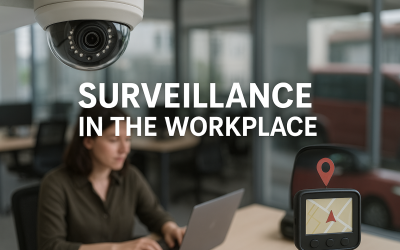Returning to work after the holidays allows many of us to feel rejuvenated and ready to work, however for some it can become an increasingly frustrating time as employees start calling in sick and simply stop showing up to work. There are legitimate reasons for employee absences but on the other side of this we have absenteeism. Absenteeism differs from legitimate leave as it is unplanned and has not been requested prior to the absence. It is particularly strenuous on small businesses who have limited manpower and resources to then cover these absences, further impacting revenue and reputation.
Ideally, the best piece of advice would be to ensure that you are aware of holiday absenteeism and to prepare your business by hiring additional holiday staff and establishing a well-crafted leave policy that acknowledges absenteeism. In particular, situations of absenteeism can be reduced through initial hiring considerations, such as the employment type being offered and the inclusion of annual leave block out periods within contracts (providing the employer reasonable grounds to refuse annual leave requests within a pre-determined period). We recommend you read our recent article, ‘4 Tips for Hiring Staff Last Minute’ for ideas on how to attract and hire candidates that are available and reliable.
For some, it might be too late and chronic absenteeism may have already set in for one or more of your employees, and in this case you will need to start managing it. If you leave absenteeism unresolved it will start impacting other employees and the working environment, with workloads and stress levels increasing, resulting in burnout.
Employers can manage absenteeism by:
- Being aware and noticing the signs and patterns of absenteeism and recording such. For example, noticing and recording that an employee has the same day off every week, fortnight, or month.
- Having a concise and clear record keeping system that allows you to review and notice patterns of reoccurring leave and absence.
- Conducting informal meetings with employees to discuss their absenteeism. Using these meetings as opportunities to support and create action plans to prevent future absences.
- Reviewing and following up after informal meetings to see if an employee’s absenteeism has decreased. If it remains the same it provides an opportunity for the employee to further explain, and the employer to provide notice of a required formal meeting.
- Providing written notice that a formal meeting will be conducted. Previous interventions will be discussed, alongside the steps that the employee can take to improve moving forwards, and notification that noncompliance of these steps will result in disciplinary action in accordance with the company policies.
At Assurance HR Management we assist many businesses with the recruitment and onboarding of employees. We have specialists that will work with you to produce accurate, current, and detailed employment agreements and policies that are beneficial and specific to your business needs. Contact us today on 1800 577 515 for a free consultation in which we can advise, assist, or do the work for you.




